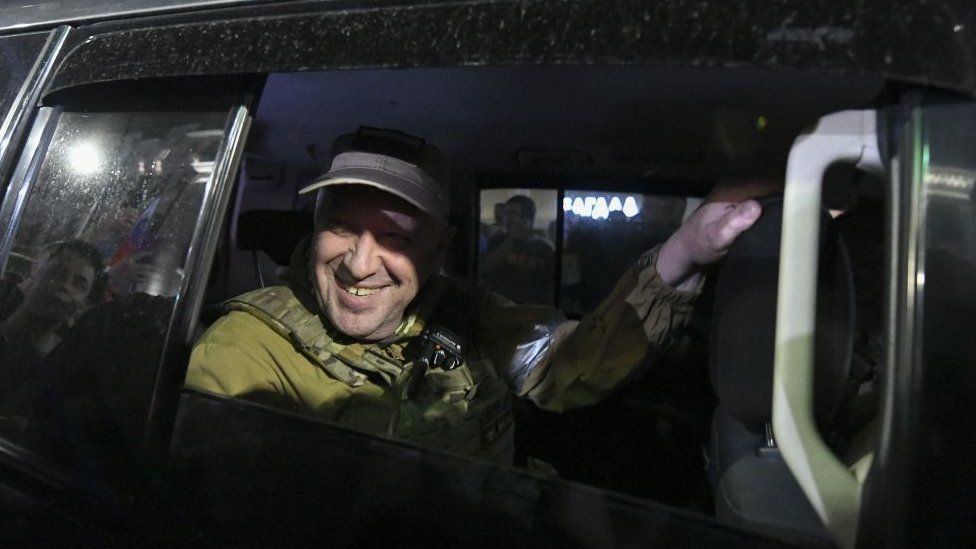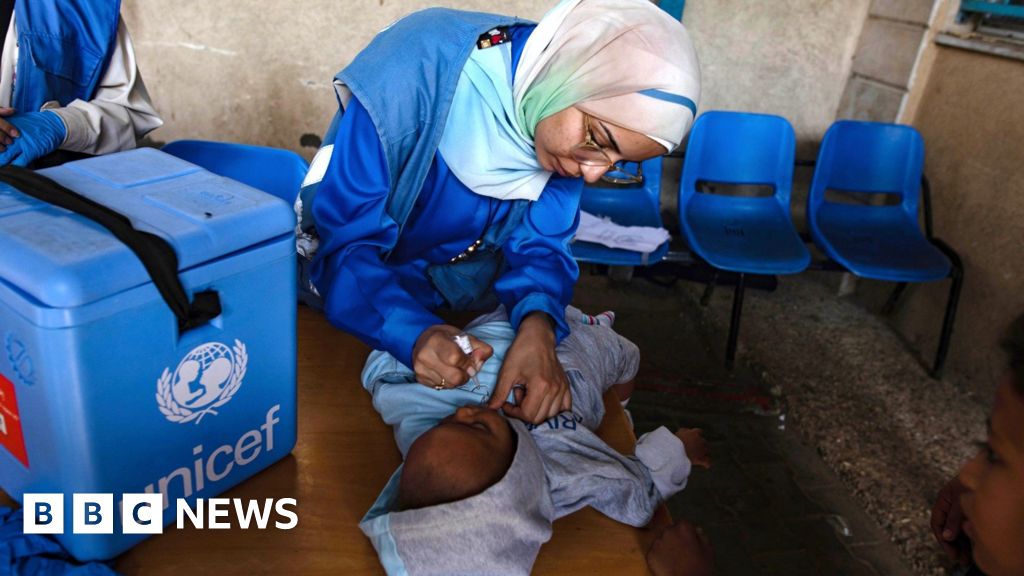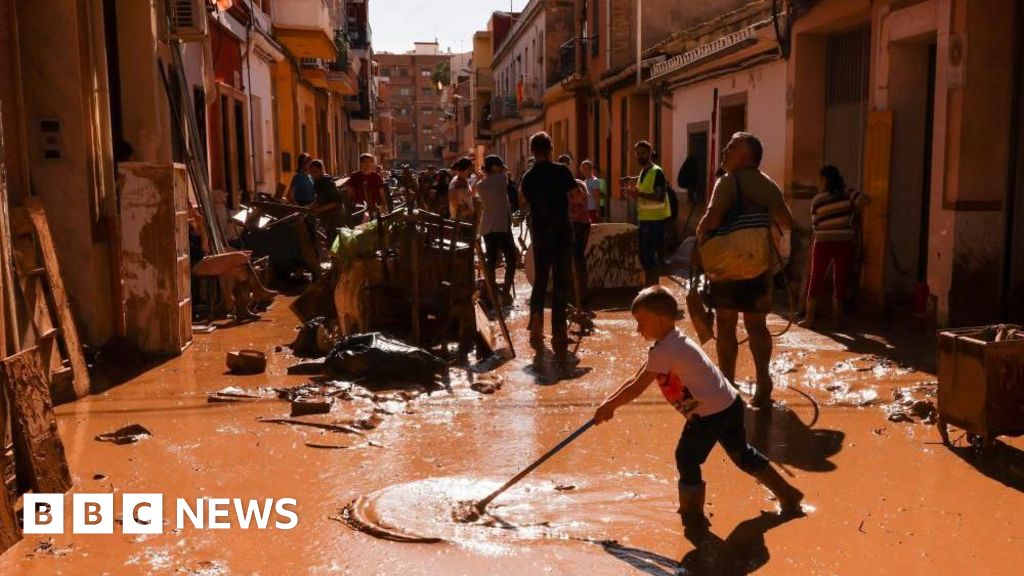ARTICLE AD BOX
 Image source, Getty Images
Image source, Getty Images
Wagner's leader Yevgeny Prigozhin has been sent into exile
By Frank Gardner
BBC security correspondent
The recent mutiny in Russia has exposed huge insecurities in that country.
But what does it mean for the war in Ukraine and what happens now to Wagner, the mercenaries who rebelled?
Why does it matter?
Firstly, in the space of just a few hours on 24 June, Wagner took control of an entire Russian city, Rostov-on-Don. They then sent a heavily-armed convoy northwards, stopping just 200km short of Moscow, shooting down Russian military aircraft en route.
It was the most serious challenge yet to President Putin's rule, even if, as Wagner's leader Yevgeny Prigozhin claims, it was not intended to be.
In short, it came close to triggering what could have been a catastrophic civil war in a country with the world's largest arsenal of nuclear warheads.
Image source, Getty Images
Image caption,Wagner fighters took control of Rostov-on-Don on 24 June
Secondly, Wagner has been by far Russia's most effective military force on the ground in Ukraine. Its soldiers, comprising both career veterans and convicts, are in most cases better paid and better motivated than the regular army.
After months of bitter close-quarter combat resembling the street battles of Stalingrad in WW2, Wagner gave Russia something resembling a victory when its troops captured the ruined city of Bakhmut this year.
What will Putin do?
President Putin is faced with a dilemma. Wagner launched a mutiny, so it's clearly a potential future threat. Yet it's also been enormously useful to the Kremlin and not just in Ukraine .
Deployed to Syria, Libya and several African countries, Wagner projects Russian strategic power and influence around the globe, and all the while under the guise of pretending it has nothing to do with the Kremlin. Only very recently has Putin finally admitted that Wagner has been state-funded to the tune of billions of roubles.
Following the aborted mutiny, the Kremlin has said Wagner fighters have until 1 July to decide whether to sign contracts to join the regular army (not an attractive prospect for most). If not, they can either return home, or go to neighbouring Belarus where Mr Prigozhin is supposed to be in exile.
Where is Prigozhin?
We know from flight tracking data that an aircraft linked to Mr Prigozhin landed in the Belarusian capital Minsk this week. His arrival there was confirmed by the Belarus leader Alexander Lukashenko.
But that same aircraft has since returned to Russia, stopping in St Petersburg and Moscow.
But where is he now and will he still be allowed to run Wagner's operations from Belarus, despite his betrayal of his former patron, President Putin?
He could still be useful to Russia, but Putin is unlikely to ever trust or forgive him for nearly triggering a civil war. There is a grim precedent of revenge exacted on those perceived to have betrayed the state.
British investigators concluded that former KGB officers turned defectors, Alexander Litvinienko and Sergei Skripal, were poisoned in Britain by agents sent by Moscow. Mr Prigozhin will now be looking over his shoulder for the rest of his life.
Image source, Telegram
Image caption,A video claiming to show Prigozhin visiting a Wagner camp on the frontline was posted on Telegram
What about Wagner's fighters?
Wagner in Ukraine is almost certainly finished, at least as an independent unit. Some former fighters may return there as part of the regular Russian army but the wild days of it operating largely as it chose and answering mostly to its leader are over.
"Russia is effectively disbanding one of its most combat capable assault forces," says Kateryna Stepanenko, a Russia analyst at the Institute for the Study of War. "That's a significant deal for Ukrainian fighters who in the past have signalled that fighting with Wagner was a lot worse than fighting with regular Russia units".
The signs are that the future of the Wagner group is still being thrashed out in negotiations between Prigozhin, the Kremlin and Lukashenko, who has offered Wagner troops the use of a military camp.
Satellite images appear to show activity at a disused base about 13 miles (21km) from the town of Asipovichy - around 64 miles from the capital Minsk. The area has been reported in Russian media as a place which could house Wagner fighters.
Ukraine now has to worry about reinforcing its northern border, while neighbouring NATO countries Poland, Latvia and Lithuania have concerns about future subversive activity Wagner may undertake from Belarus.
And yet nobody, probably not even the Kremlin itself, knows how many Wagner fighters will go to Belarus, how many will join the Russian army to fight on in Ukraine, and how many will hang up their boots and go home.
A trawl of Telegram online chat rooms by BBC Verify reveals few clues, although one blogger who identifies himself as a Belarusian Wagner fighter says the group "continues to work". In the immediate aftermath of the mutiny many are believed to have returned to their bases in the Russian-occupied parts of eastern Ukraine.
What impact on the conflict?
BBC Verify has been looking for evidence of gains by Ukrainian forces since the Wagner rebellion, but has not observed any significant changes to frontline positions so far.
"I don't think it will have an impact right now as Russia is on the defensive," says Marina Miron, a Russian military expert at King's College London.
"If the regular Russian army manages to adsorb the Wagner troops and re-purpose them under a single command structure, it won't necessarily weaken the Russian side."
Ultimately it comes down to a question of morale amongst frontline Russian troops. If they suspect their commanders are fighting amongst themselves back home in Russia, then over time that could seriously affect morale in the trenches.
Wagner is not finished but its days of operating largely independently of the Russian army are over. With its weaponry handed in and without the charismatic Prigozhin at its head, it will no longer be the force it was. And that, for Kyiv, is some relief.
Additional reporting by Jake Horton, Daniele Palumbo, Paul Brown and Benedict Garman.

 1 year ago
20
1 year ago
20








 English (US)
English (US)